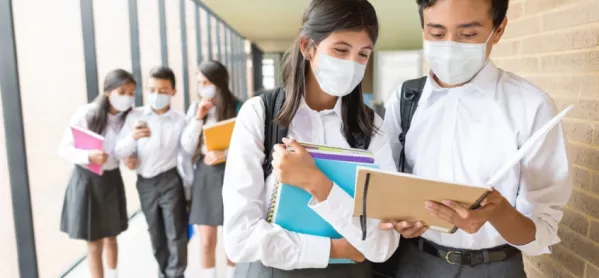It is “naïve” of the government to think that ending Covid self-isolation requirements will stop disruption to education in schools, the NAHT school leaders’ union has warned.
The union spoke out after prime minister Boris Johnson signalled in the Commons today that laws requiring people in England with the coronavirus to self-isolate could be lifted after half-term.
Paul Whiteman, general secretary of the NAHT, said that large numbers of staff and pupils are still unwell enough to miss school, and the rule changes “won’t stop” these absences.
He was speaking the day after new figures revealed that around 9,132 teachers and school leaders (3.8 per cent) in state secondary schools and 12,595 in state primaries (5 per cent) were absent for Covid-related reasons on 3 February.
Mr Johnson said he would present his plan for “living with Covid” when Parliament returns from a short recess on 21 February.
And he indicated that, as long as the Covid data remains positive, the legal duty to self-isolate will be lifted a month earlier than planned.
‘Very high numbers’ of school pupils and staff ill with Covid
But, responding to the announcement, Mr Whiteman said that while the desire to get back to normal is “overwhelming”, the government will need to explain in “clear and unambiguous terms” why it thinks lifting all restrictions should apply to schools at this point.
He added: “It would be naïve to think that lifting the requirement to self-isolate will end the disruption in schools. The current reality is that we’re seeing very high numbers of pupils and staff, particularly at primary, catching and becoming ill with Covid.
“Whilst, thankfully, for most people, the symptoms appear to be relatively mild, large numbers are still unwell enough to have to miss school, not because of the requirement to self-isolate but because they are simply not well enough to be in school.
“Whilst this change may, in some cases, reduce the amount of time pupils and staff are absent for, it won’t stop those absences altogether.”




